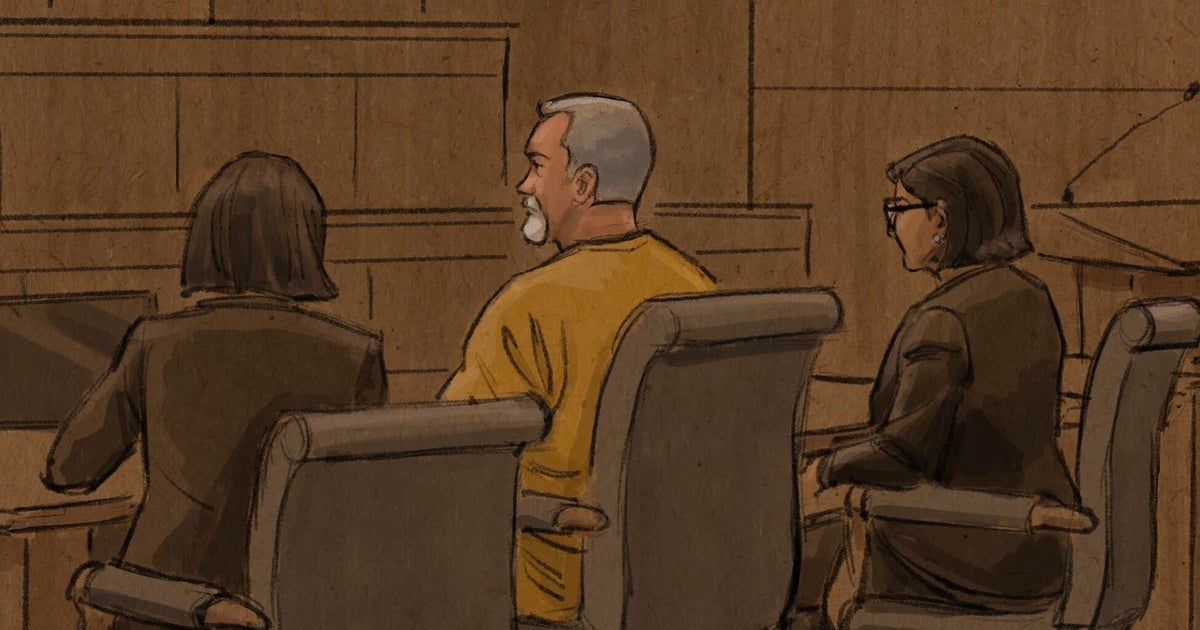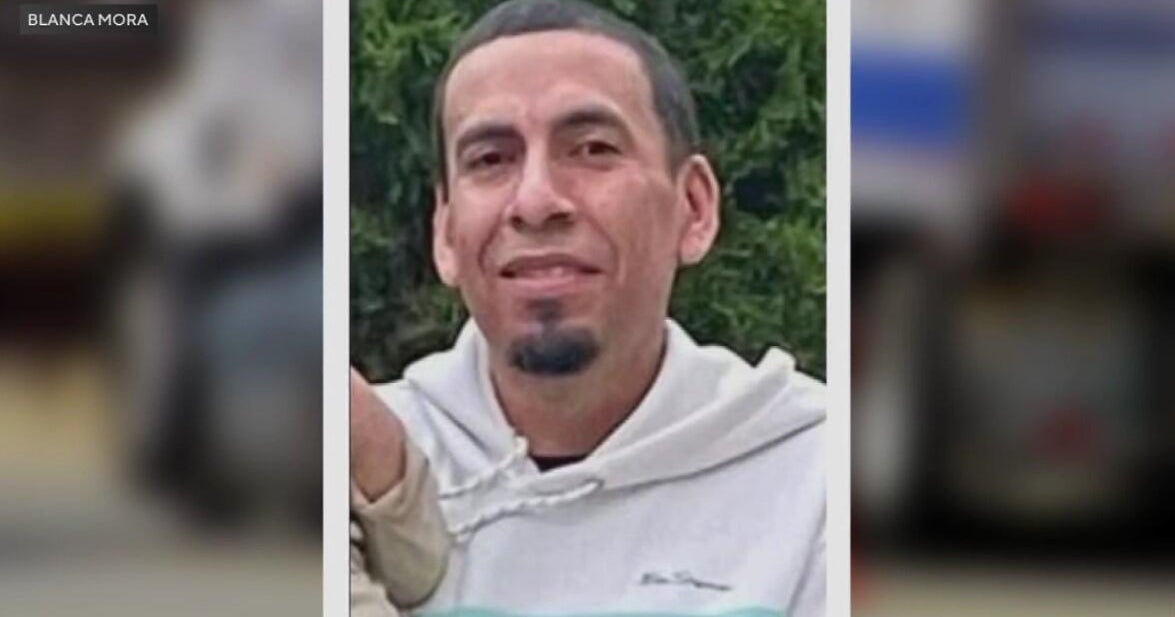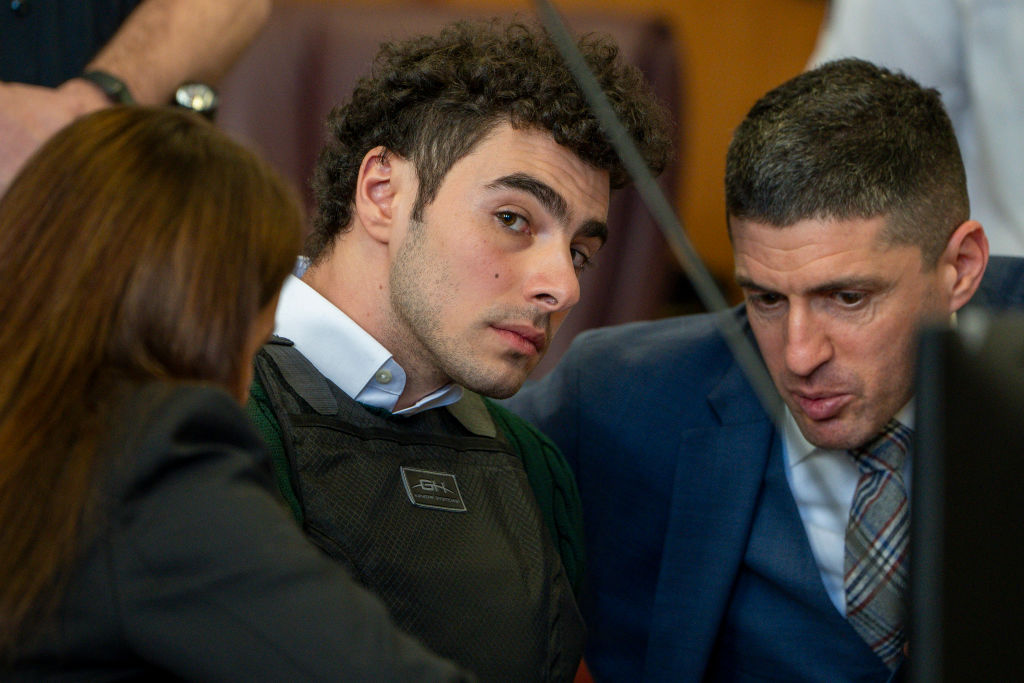Police union head says race didn't play a role in Breonna Taylor shooting, believes investigation was "thorough"
Breonna Taylor's mother, Tamika Palmer, has filed a request for a new grand jury and an independent prosecutor to review her daughter's death. The 26-year-old was shot and killed in her home during a Louisville police raid in March.
The development follows "CBS This Morning's" exclusive interview with two grand jurors in the case. They said they were never presented with the option of deliberating murder or manslaughter charges, which contradicts statements made by Kentucky Attorney General Daniel Cameron.
Ryan Nichols, the president of the Fraternal Order of Police chapter that represents the Louisville Metro Police Department, spoke with "CBS This Morning" co-host Gayle King about the investigation. He also responded to what Taylor's boyfriend, Kenneth Walker, said unfolded when police raided Taylor's home.
Read part of their conversation below.
Ryan Nichols: A tragedy did, in fact, happen. A police officer was critically injured, a young woman was fatally injured. And, you know, the long, thorough investigation ensued ... and that's the process that should happen.
Gayle King: You know, there are two sides, of course, to every story. But what is not in dispute is that Breonna Taylor is dead. That she was killed in a hail of police gunfire. … But let's go to Kenneth Walker and his encounter with police. Thirty-two shots fired that night after he fired what he said was one warning shot, not knowing what was happening in his apartment.
Nichols: So I do believe that the officers were definitely justified in returning fire.
King: Thirty-two shots, Ryan? Thirty-two shots?
Nichols: Well, in a situation like that when you return fire to stop a threat, typically you may not be aware of how many rounds someone else is firing, how many other officers are firing. And perhaps, you may not have an accurate count of the rounds you fired in a high-stress situation like that.
King: How do you explain the incident report from the night that said that there was no forced entry in the apartment? We know that's not true. They said that there were no shots that were fired when Breonna Taylor was hit at least five times.
Nichols: Obviously, the information had not been completely filled out in the portion of the incident report that was released. Not by any means suggesting that the police were saying none of those things occurred because it was obvious they had. Not being part of that investigation, I think probably the report should not have been released at that time.
King: You have the attorneys for Kenneth Walker claiming cover-up. You have the grand jurors who talked to us a couple of days ago. I want to get your response to their belief that there was and is a cover-up by the Louisville Police Department about what happened that night.
Nichols: I don't believe there's a cover-up of anything that occurred. ... Can I definitely say affirmatively that no mistakes on anything were made? Obviously not. But I don't believe that there was any type of cover-up. And if there was, that that would definitely be found out by the many entities that are conducting these investigations.
King: Are you comfortable, Ryan, with the grand jury's findings in the case?
Nichols: I have faith that the attorney general did a thorough and complete investigation, and has a competent, qualified staff to do that.
King: You're calling Attorney General Cameron's investigation a complete and thorough investigation. Other people would disagree with you about that. That's why the more you hear about this case, the more questions are being raised. Do you see that?
Nichols: Yes, ma'am, I understand that. There's other agencies and entities that are still looking into things from other aspects of the investigation. If they conclude that it was a tragic incident, but nothing illegal happened, then we have to be willing to deal with that and move forward from that also.
King: You don't believe this has — race played a role here at all?
Nichols: No, I don't think this occurred as a result of any type of racial issue or this was determined by race somehow.
King: Do you think outside of this case that the Louisville Police Department has a problem with racial bias?
Nichols: No, I think we're a very diverse department. ... We try to stay up with the national best practices.
King: In 2020, 45% of the arrests have been Black people, but they only make up 23% of the Louisville population. And you go from that to the tragedies that occur, how do you explain that?
Nichols: Well, so I don't have all the specific numbers of — if you're talking shooting tragedies or anything like that that occur.
King: Well, we can agree that there is a difference in the number when it comes to Black victims and White victims at the hand of the police. Can we at least agree on that?
Nichols: Sure. ... So the circumstances that lead up to every specific incident, whether it's an officer-involved shooting here or anywhere else ... you know, an investigation occurs.
King: How do you explain how many police officers do not seem to be held accountable in these type of incidents?
Nichols: Well, I would say that once those investigations occur, that police are and definitely should be held accountable.
King: But they're not though, Ryan Nichols. They're not held accountable.
Nichols: Well, ma'am, if the law here is such that nothing illegal occurred on either side of that door that night, and our attorney general did find some charges to pursue and is going to pursue those charges as it relates to one officer, how is the accountability not occurring?
King: What's the morale of your police department these days?
Nichols: So morale has — is low here. ... They want to be here and they don't want citizens to have to live in fear of violence of any kind. And so it's very frustrating.
An attorney for Sergeant John Mattingly also said Cameron conducted a careful, thorough investigation and came to the right decision. Nichols said when it comes to change, his union is always interested in fair and balanced reforms that enhance policing. The FBI and the Department of Justice have open investigations into the Breonna Taylor case.



